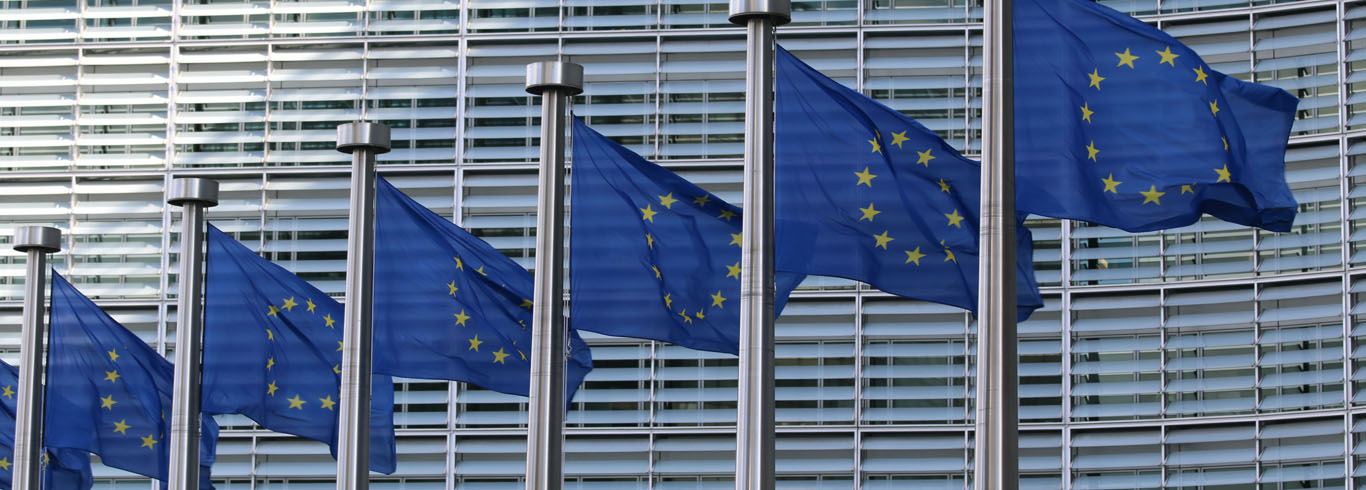EU REACH
European Union REACH
REACH is the EU regulation governing the manufacture and import of chemical substances. REACH is an acronym for the “registration, evaluation and authorization of chemicals” and has been in force in all EU Member States since June 1, 2007. It also applies in Iceland, Lichtenstein, and Norway.
This webpage is designed to assist U.S. exporters to Europe, particularly SMEs, in identifying their obligations under REACH so they can take the necessary steps to ensure compliance with this regulation.
U.S. exporters may feel a need to seek professional assistance to ensure compliance with their REACH obligations including the retention of an Only Representative (OR). A list containing businesses providing OR and consulting services to U.S. businesses can be found down below (Assistance & Further Information).
REACH Fundamentals
- Registration
In general, REACH requires the registration of chemical substances manufactured or imported into the EU in quantities exceeding 1 metric ton per year. This requirement applies per substance and per manufacturer or importer (as appropriate). Registration applies to chemical substances as such, in preparations (also called “mixtures”) and, under certain conditions, to articles (finished products) incorporating those substances.
REACH assigns the obligation to register on the EU based manufacturer or EU based importer. Many U.S.-based companies prefer to appoint an “only representative” to register their product(s) rather than rely on their EU-based customers to do so. Only Representatives are commonly referred to by the acronym “OR”. Registrations are submitted to the European Chemicals Agency (ECHA) through the IUCLID website.
Bearing in mind that the cost and burden of registering can be daunting, the EU exempted a limited number of substances from the registration requirement. These exemptions apply to:
- Chemical substances imported into the EU or manufactured in quantities below 1 metric ton;
- Chemical substances used for research and development;
- Waste;
- Chemical substances whose uses are covered by other EU legislation such as medicine and food products;
- Pesticides and biocides;
- Polymers; and,
- Companies that had notified chemical substances under previous EU legislation (Directive 67/548/EEC).
Annex IV and V of the REACH regulation lists a number of other chemical substances exempted from REACH. Dossier list includes minerals, ores, cement clinkers, crude oil, coal, and coke; on the condition that they are not chemically modified.
- Evaluation
There are two aspects to the REACH evaluation process: dossier evaluation and substance evaluation.
For dossier evaluation, ECHA is statutorily required to perform a compliance check on at least 5% of the dossiers submitted for registration. Dossier evaluation focuses on completeness and quality of information. ECHA will notify the registrant of any deficiencies.
For substance evaluation, each year ECHA and the EU Member States select 30 chemical substances for placement on the “Community Rolling Action Plan”, commonly referred to as “CoRAP”, for further evaluation. The Members States focus on those chemical substances that are manufactured/imported in large quantities and which are persistent and prone to bioaccumulation.
Each Member State has a designated agency that performs the evaluation; it is not performed by ECHA. Chemical substances placed on the CoRAP may eventually be subject to authorization or restriction.
The CoRAP list is published on the ECHA website.
- Authorization
U.S. companies that wish to export or use within the EU chemical substances identified as a “substance of very high concern” (SVHC) must ensure that a use-authorization has been obtained. The policy objective of this requirement is to ensure adequate control and progressive replacement of these substances.
U.S. companies concerned about whether a product requires an authorization should review the “candidate list” and the “authorization list” (REACH Annex XIV). The candidate list identifies the chemical substances the EU is considering imposing an obligation on users to obtain a use-authorization. Companies that need to apply for authorization may visit the following website for further information: applications for authorization.
Importers of articles (i.e. finished products) containing Candidate List substances have certain legal obligations. See the guidance on substances in articles for the obligation to notify ECHA and the duty to communicate safe use information.
- Restriction
The restriction is another means under REACH that allows the European Commission to control the use of dangerous chemical substances circulated within the common market. Any chemical substance on its own, in a preparation or in an article may be subject to EU-wide use restrictions that limit or prohibit its production or use.
Chemical substances subject to restrictions can be found in REACH Annex XVII. The following link will direct you to the ECHA webpage with the most up-to-date information on chemical substances subject to restriction: restriction page.
CARACAL
Competent Authorities meetings on REACH implementation (CARACAL) are held at least twice a year and bring together the Commission, ECHA, Member States, and a number of stakeholders including non-EU countries. U.S. companies wishing to get information on the latest CARACAL meetings may contact the U.S. Mission.
Assistance & Further Information
- Guidance & Legislation
ECHA has produced a number of guidance documents to help companies determine their REACH obligations and comply with the legislation. In addition, ECHA maintains a webpage containing answers to frequently asked questions.
U.S. exporters may also submit questions to ECHA or Member State helpdesks (free of charge).
In addition, ECHA maintains a webpage containing links to the REACH regulation (as amended), court-rulings by the European Court of Justice, and other relevant legislation.
- Helpful EU Websites
Contact the Commercial Service
If you have additional questions not covered on this website, please send an email and reference “REACH Inquiry” in the subject line. One of our specialists will respond to your inquiry as soon as possible.
